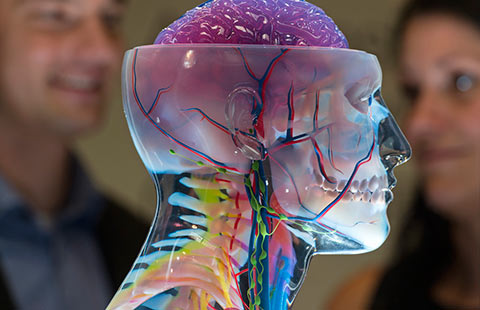Taking a bite out of the market for snakes
In 2012, 108 of the 160 families in the village were breeding snakes. Most villagers have an annual income of 50,000 to 60,000 yuan and some earn hundreds of thousands of yuan, according to Yang Genmei, the village Party chief.
More than 4 million serpents are now bred in the 0.9-square-kilometer Zisiqiao village, earning it the reputation of China's No 1 snake village.
In 2012, the annual production value of the snake village reached 60 million yuan and the profit of snake-made medicines increased 50 percent compared with the previous year, Yang said.
Snakes are renowned for their medicinal value in traditional Chinese medicine. In Guangdong province, snake soup and snake wine are often drunk to boost the immune system.
Poisonous snakes have higher economic value, according to Yang, because the venom is effective in curing certain cancers and can be made into anti-venomous serum.
A large part of his snake farm is inhabited by vipers, cobras and the five-step snake. The five-step snake name refers to the fact you can only walk five steps before you drop dead if it bites you. They are worth about 800 yuan each.
Yang Jinquan, 47, from Zisiqiao village, has reared vipers for 20 years. Fully grown, they are about 70 centimeters long and have triangular-shaped heads. Their venom can be extracted eight times a year. It is made into a dry powder and sold to medicine companies.
"Dried snake, snake gallbladder, snake oil and snake skin - all are useful and can fetch a good price," said Yang Jinquan. The annual net revenue of his snake farm is about 1 million yuan.
Yang Hongchang also started his own company and built a brand - the Moganshan Snake Co. It conducts research and develops snake byproducts, ranging from dried snakes to snake capsules, wine and powder.
His products have gone global, exporting to many Asian countries. His technology of breeding snakes also went abroad - he helped establish a 10,000-square-meter snake farm in South Korea in 2008.
The ambitious businessman is now trying to exploit opportunities among China's growing number of middle class people who "love traveling and pay greater attention to their health".
He built a snake culture museum in 2012 to attract visitors from home and abroad and plans to build a sanatorium that uses snake products to heal patients.
Snake-rearing farms also appeared in Guangxi Zhuang autonomous region and Fujian and Hubei provinces, as the demand for snake health foods increased in recent years, though none on the scale of Yang's village.
Wen Aiguo, chairman of Wuyijun Biological Technology Co in East China's Fujian province, has also developed a comprehensive snake industry chain - raising snakes, processing byproducts and developing snake-themed tourism, after starting the business in 1997.
Sales of snake products in 2012 increased by 10 percent compared with the previous year, Wen said. He expects more profits from visitors to his snake-rearing base in this Year of the Snake.
A manager surnamed Zhang from the Longpan Biological Technology Co in Central China's Hubei province, a company that conducts research into and develops snake products, said snake gallbladder tea and snake wine are most popular with buyers because they can be drunk on a daily basis.
wuni@chinadaily.com.cn























